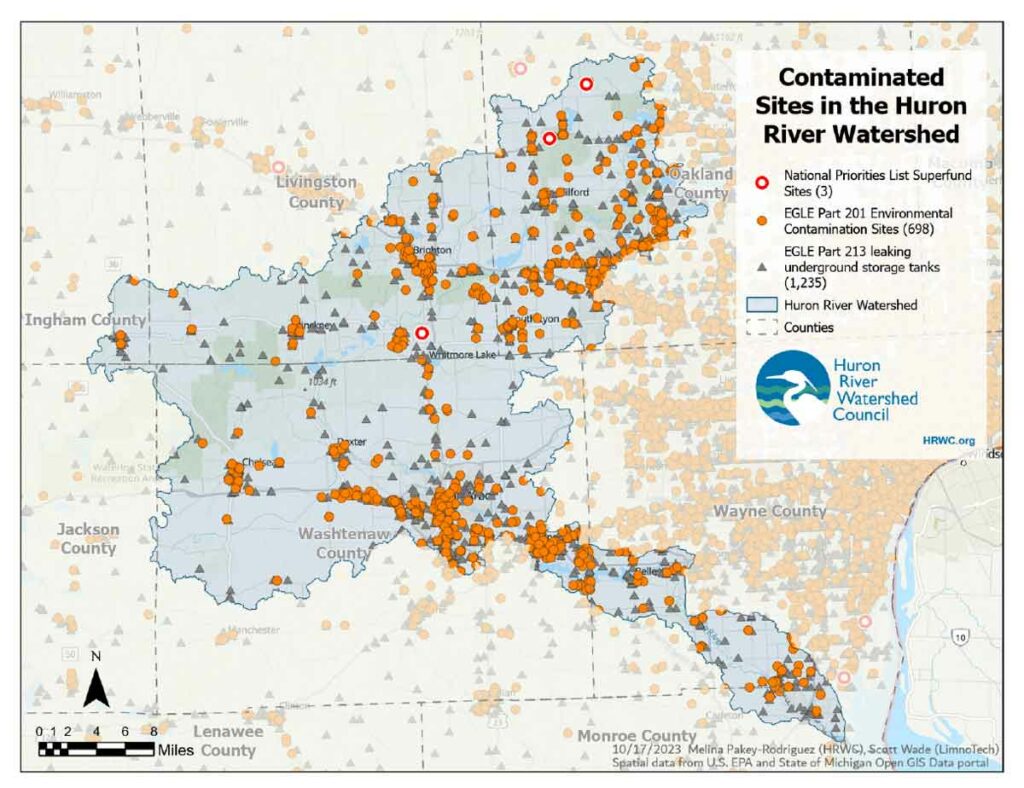Governor Gretchen Whitmer has proposed to increase waste disposal tipping fees. Tipping fees are basically a surcharge for managing solid waste. Michigan’s tipping fees are significantly lower than other Midwestern states, and as a result, Michigan brings in a lot of trash and recycling from other states and Canada. Critics of the current arrangement commonly blame low tipping fees for “making Michigan the Midwest’s dumping ground.”
Raising tipping fees to match the rates that nearby states charge will reduce the influx of trash, thereby reducing the risk of contamination to Michigan’s water and soil. The proposed tipping fee increase would generate about $80 million per year. Those funds could be used for the cleanup of contaminated sites and economic redevelopment in brownfields.
The Proposal
The proposal (in the Governor’s Fiscal Year 2025 proposed budget) would change the state’s solid waste surcharge, commonly referred to as the tipping fee. The current fee of $0.36 per ton would be set to $5.00 per ton. It seems like a big jump, but it would put Michigan on a level-playing field with neighboring states and adds up to cost the average Michigan resident about one penny per day. For comparison, Ohio charges $4.75 per ton and Wisconsin charges almost $6 to $13 per ton.
Encourage Responsible Waste Management
The change would yield numerous environmental benefits, but would most directly encourage responsible waste management and an overall reduction of waste. The increased tipping fee is designed to discourage out-of-state waste, thereby reducing the volume of waste Michigan has to manage. This is crucial because less waste means less strain on our landfills, which can reduce greenhouse gas emissions and extend landfill lifespans.
Fund Economic Revitalization and Contamination Cleanup
The additional revenue generated will be channeled into community programs like brownfield redevelopment. This not only cleans up contaminated sites but also paves the way for new, sustainable developments that can benefit the economy and the environment.
The Proposal Follows the Scientific Consensus
The Environmental Research & Education Foundation has noted that tipping fees at municipal solid waste landfills have been increasing nationwide. This trend reflects the growing recognition of the true costs of waste management and the need for sustainable practices.
It’s a Win-Win
 This proposal is one of many steps Michigan needs to take to fund cleanup efforts, protect public health, and care for the environment on which we rely. Along with stronger regulations that hold polluters accountable, updating tipping fees will help Michigan be a healthier place to live and grow.
This proposal is one of many steps Michigan needs to take to fund cleanup efforts, protect public health, and care for the environment on which we rely. Along with stronger regulations that hold polluters accountable, updating tipping fees will help Michigan be a healthier place to live and grow.
HRWC staff recently hosted listening sessions for residents of Belleville, Ypsilanti, and Flat Rock to freely voice their concerns and perspectives across a broad range of watershed topics. Residents of the Belleville area (which is home to several significant waste disposal facilities) expressed clear concern over contaminated substances affecting local water quality and putting public health at risk. They also shared skepticism over how the revenue from the dumps was being applied to their community. HRWC feels an increase in tipping fees will encourage more sustainable use of landfills across the state while potentially benefiting cleanup activities near these same communities.
We know from data collected from the Michigan Department of Environmental, Great Lakes and Energy (EGLE), that we have 698 (EGLE Part 201) Environmental Contaminated Sites and 1,235 leaking underground storage tanks (EGLE Part 231) in the Huron River watershed. See our map of Contaminated Sites in the Huron River Watershed. An increase in the State’s tipping fees can go a long way toward cleaning up these contaminated sites thus improving the overall health of our watershed.
What you can do!
Contact your state representative and senator. Tell them that funding the clean up of polluted sites in Michigan is a priority and that they should support the proposed increase to Michigan’s tipping fee for competitive parity with neighboring states.
Find your State Representative
Email David Lossing, HRWC’s Government Relations Director, at dlossing@hrwc.org if you live in the watershed and need help finding or contacting your legislator.
If you are concerned about a contaminated site impacting your private drinking water well, contact your county health department for how to test your well water.
If you have questions about the map, email Daniel Brown, HRWC Watershed Planner at dbrown@hrwc.org.
Sign up for our e-news here and follow us on X (formerly Twitter), Facebook and Instagram. HRWC will track the action on this proposed budget and share developments with our audiences.



